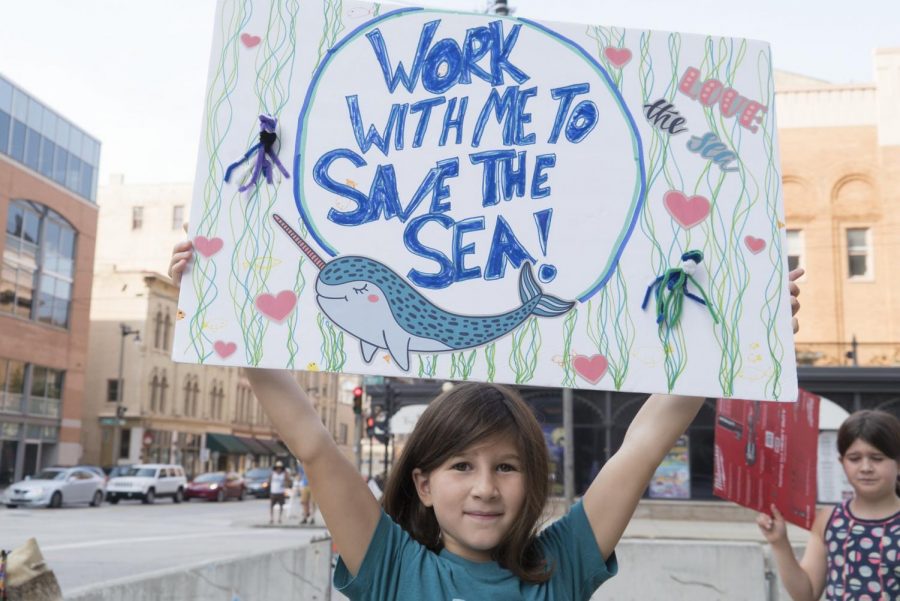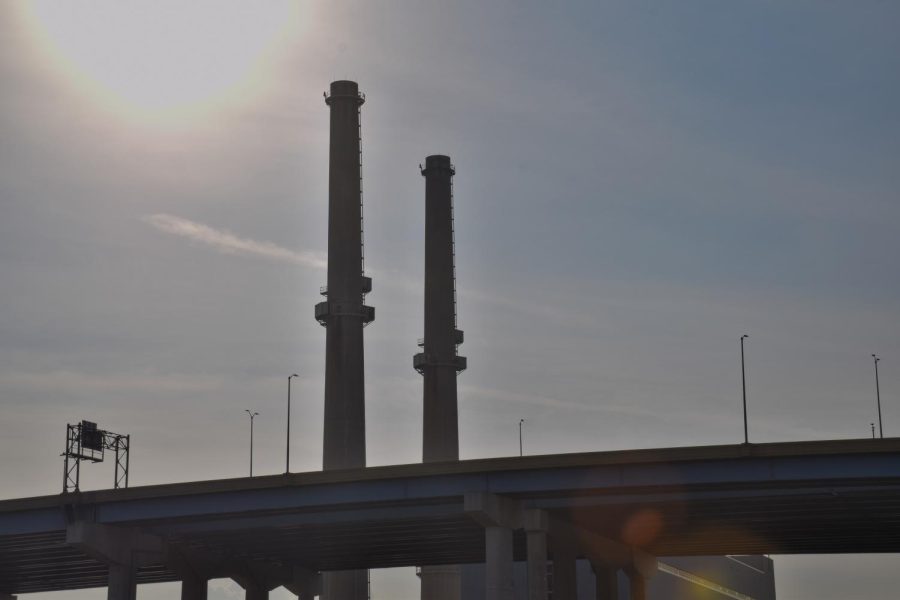I opened Instagram last week to a video of a line of cars floating in rushing waters. My friend posted this video of a flood in her hometown located in dry southern Spain. The flood, recorded as the worst flood in Eastern Spain in 140 years, has forced thousands to evacuate, closed schools and killed eight people so far. My friend was also affected: her family’s music shop sustained damage.
I was soon thinking about other natural catastrophes that were worsened by human activity that have happened this past month: Hurricane Dorian, tropical storm Imelda, Hurricane Barry and the recent wildfires in Indonesia. Each of these examples has forced those living in the local areas to alter their lifestyles and adapt to the damage.
These natural disasters are becoming too common and too frequent– they can occur anywhere and affect anyone. While watching individual behavior or curbing wasteful habits is great, the demand for climate action is so pressing that it requires legislation and support from the federal government. However, as the battle to convince the federal government to declare a climate emergency continues, local governments must take matters into their own hands by declaring a climate emergency and formulating a plan of action in the meantime.
Milwaukee should declare a climate emergency because the human influence on the environment has created consistent global devastation. Climate change is a global issue and should, therefore, be addressed across the globe. Moreover, the subtler yet equally catastrophic effects on Milwaukee demand action, including the transition to 100% renewable energy within the decade.
The American Lung Association gave the Milwaukee-Racine-Waukesha area an F in terms of ozone levels. Ozone (molecularly composed of three instead of oxygen’s two molecules) has chemical properties that enable it to react with the human body, so it is dangerous to human health. Those most affected include citizens living in poverty and those with asthma, diabetes, chronic obstructive pulmonary disease and cardiovascular diseases. Children and adults over 65 years old are also at high risk.
Transitioning to 100% renewable energy is in the best interest of citizens in southeastern Wisconsin. Whether one identifies with one of these mentioned groups, living in an F-graded area can trigger significant health problems for otherwise healthy individuals.
Midwestern scientists predict that climate change will cause increased flooding in Milwaukee and the Great Lakes area. Great Lake states are warming faster than any state in the country, according to an Environmental Law and Policy Center report. This warming increases precipitation, which will lead to increased flooding without the appropriate infrastructure to manage the stormwater runoff.
An increase in runoff can cause the growth of algae blooms, which damages the Great Lakes and produces toxins that can cause disease in humans and wildlife. Lake Erie has already started suffering the consequences of algae growth. This poses a threat to wildlife and contaminates Lake Erie’s water, forcing the citizens of Toledo, Ohio to cut their water supply.
Milwaukee citizens’ health will also be affected by the irregular climate. Rising temperatures can have fatal effects on Milwaukee citizens, especially those who do not have access to air conditioning in their homes or places of work. According to a 2016 Environmental Protection Agency report, Milwaukee County heatwaves have killed a total of 102 people between the years of 1995 and 1999.
Milwaukee also needs to acknowledge and address the disproportionate effect that climate change has on communities of color. Fifty-six percent of Milwaukee’s population are people of color.
Nationally, 78% of African Americans live within 30 miles of a plant or factory that produces toxic emissions. According to the executive director of the Labor Council for Latin American Advancement, over 80% of Latinos in the United States as of 2011 live in counties that violated federal air pollution regulations. This is environmental racism.
Ignoring the climate crisis is not only ignoring the well-being of Milwaukee citizens but also ignoring the fact that people of color — the majority of Milwaukee’s population — will be most affected by future catastrophic events.
Declaring a climate emergency and switching to 100% renewable energy within the decade will put Milwaukee on the necessary path to a healthier environment. The quickest way to get the city, local and state government to take action is to take action yourself.
Participate in activities and events held by local climate activist groups, such as 350 MKE and Students for an Environmentally Active Campus, a Marquette organization that promotes environmental action.
Write to Governor Tony Evers or mayor Tom Barrett or submit a comment online urging him to declare an emergency.
In the meantime, watch your habits and explore ways to minimize your own waste. Switch to bar soaps, get into the habit of taking public transit or walking, carry around a reusable water bottle or avoid buying things with plastic packaging.
One hundred fifty-three million people are predicted to die by the end of the decade after two degrees of warming from air pollution alone. This climate emergency is not geographically biased and demands unified action.
We can no longer rely on the federal government to respond to the climate emergency. We must urge the city of Milwaukee and the state of Wisconsin to declare and combat the climate emergency before the damage becomes irreversible.


